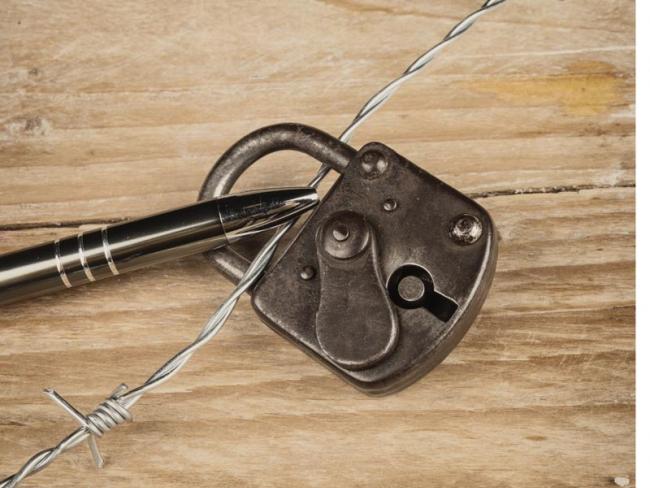Barry White, outgoing NUJ member on the European Federation of Journalists (EFJ) steering committee, outlines the latest threat to press freedom.
On 14 April, just 11 days after the Panama Papers confirmed the central role of journalists and whistleblowers in revealing illegal or unethical business practices, the European Parliament approved rules to protect corporate trade secrets that could seriously hinder future revelations.
Although the stated aim of the Trade Secrets Directive is to protect firms within the EU from corporate espionage by foreign rivals, on closer examination many feel that business could use the law to prosecute journalists and whistleblowers for exposing corporate bad behaviour.
The European Federation of Journalists, along with other media associations and press freedom organisations, believed that it had achieved a clear exception for journalists after extensive lobbying of European institutions. What was not clear was the protection given to whistleblowers, who are usually critical in providing information about corruption and other wrongdoing.
‘Journalists will need to start campaigning through the NUJ.’
Shortly after the Directive was passed the EFJ said that journalists and media associations were concerned that it could, after all, put journalists at risk, limiting their ability to investigate and report about business. Its concerns are shared by Reporters Without Borders and the European organisations representing magazine, newspaper and broadcasting companies.
“Despite valuable improvements of the original draft, the newly adopted Directive still raises doubts as to whether journalists and in particular their sources – whistleblowers – are appropriately protected,” the statement read.
“Exceptions foreseen under Article 5 for the exercise of freedom of expression and information are not clear enough, which means that safeguards for freedom of the media will largely depend on how national governments implement the Directive.
“In addition, whistleblowers are potentially left exposed insofar as they will be held to prove that the disclosure of information is made ‘for the purpose of protecting the general public interest’.
“This could lead to significant legal uncertainty and chilling effects on journalists as they would be required to prove that the whistleblower’s intention was in line with the requirements of the Directive before even being able to use disclosed public interest information.”
At the same time the Socialists and Democrats group in the European Parliament, which voted for the measure, put out a statement justifying, with a late reservation, their support for the Directive and claiming that both whistleblowers and journalists are “expressly exempted” from the scope of the new law.
But in the face of opposition from unions and publishers, and with the excuse that other national and EU legislation might undermine the Directive, they called on the European Commission to put forward new proposals…“to protect whistleblowers in the EU exposing illegal or unethical activities”!
Conflicting legislation
In the meantime what are journalists and whistleblowers to do? We face conflicting legislation, good for some lawyers, bad for journalists and whistleblowers. While we await these new proposals, attention will shift to the 28 member states who will over the next two years decide how to incorporate the new Directive into national law.
This will be an interesting exercise in seeing just how much national parliaments actually act as the peoples’ watchdogs in matters such as these. Journalists will need to start campaigning through the National Union of Journalists and other press freedom organisations to stop the incorporation of this dodgy directive into our laws.
The UK record is not good. We are already in a battle to stop the worst excesses of the government’s Investigatory Powers Bill (often called the “Snooper’s Charter”) now before parliament. This weakens existing safeguards for journalists and risks their data being accessed by law enforcement agencies, while giving the state widespread powers to intercept Internet and telephone communications – which also put sources at risk.
Through the Bar Council, lawyers have expressed serious concerns about the Bill, which they believe will threaten “legal Professional Privilege”, the right of clients to have their conversations with their legal representatives kept confidential. “Failure to protect that privilege would amount to a significant derogation of a fundamental constitutional right which is part of the foundation of the rule of law,” the Bar Council told a parliamentary committee in March.
So in the UK we need to step up the campaign against the Snooper’s Charter, which has already received its second reading, and prepare to campaign against the new Trade Secrets Directive. Unless, that is, there is a vote to leave the EU on 23 June, which could derail it.

